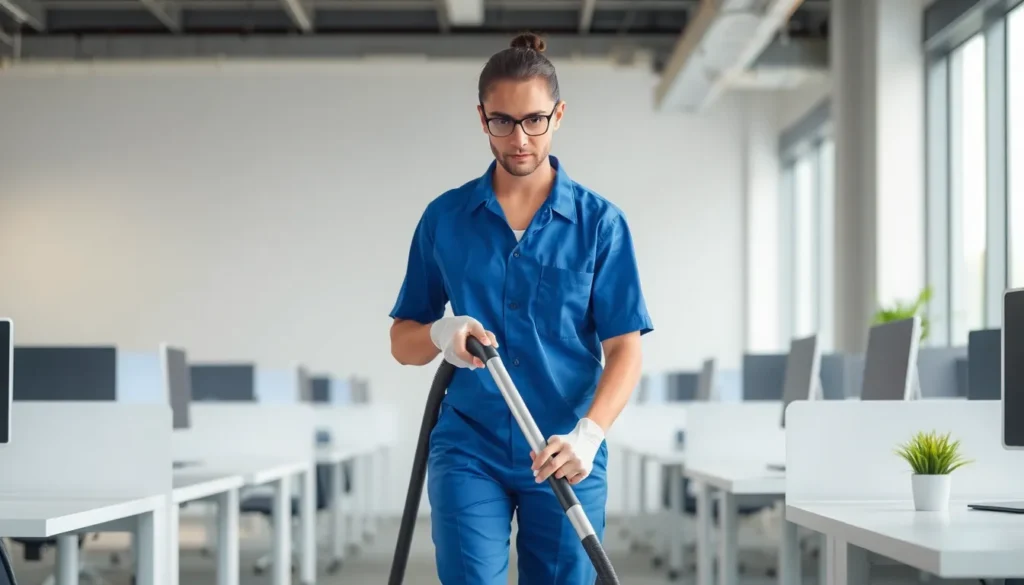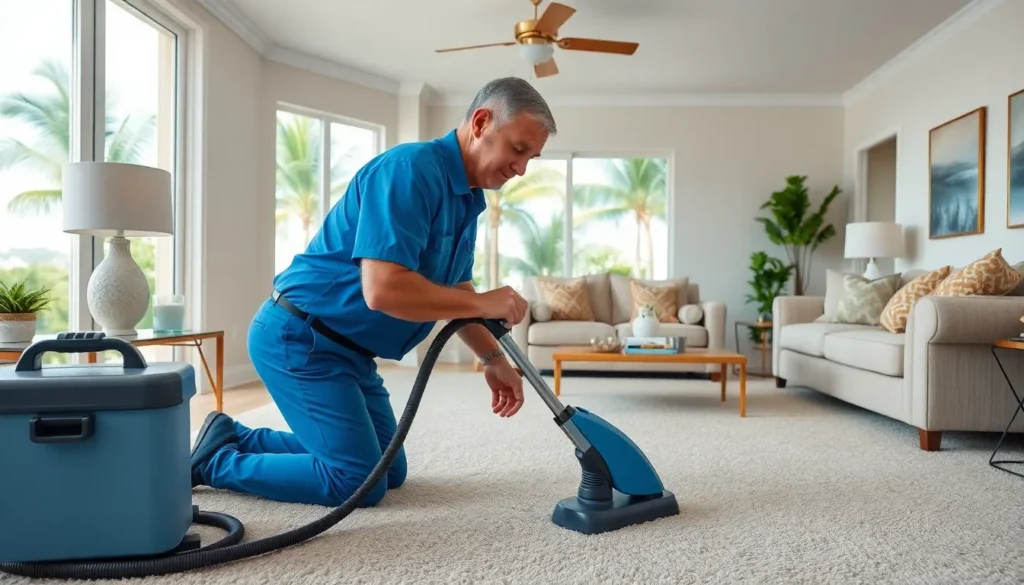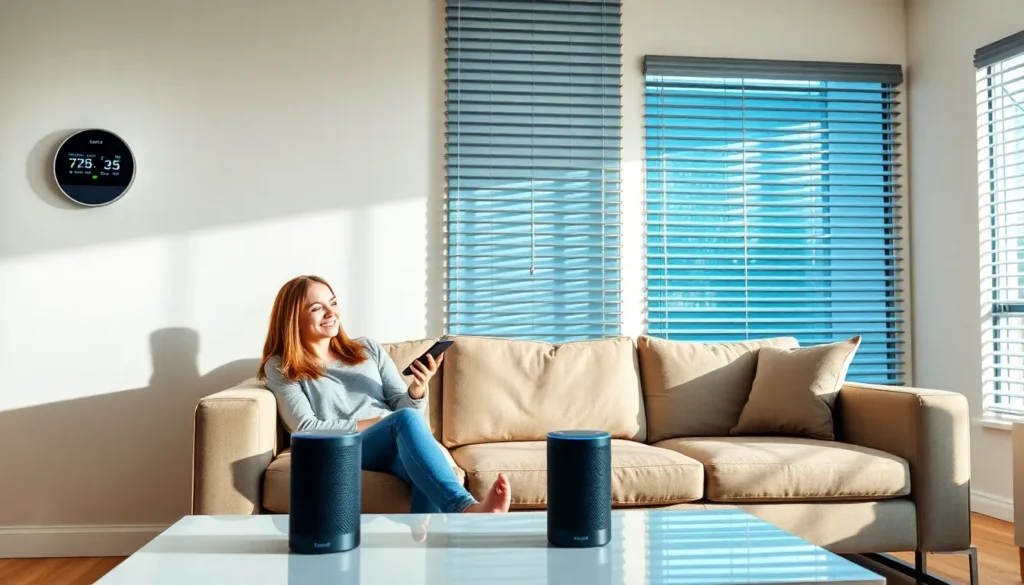Table of Contents
ToggleWhen it comes to keeping spaces spotless, cleaning staff are the unsung heroes. They work behind the scenes, tackling dust bunnies and mysterious stains that would make even the bravest souls shudder. Without them, offices would resemble post-apocalyptic landscapes and homes might just become a natural habitat for dust mites.
Importance Of Cleaning Staff
Cleaning staff play a vital role in creating and maintaining clean environments across various settings. Their contributions significantly enhance overall hygiene and workplace efficiency.
Role In Maintaining Hygiene
Cleaning staff ensure surfaces receive regular sanitization, which reduces the spread of germs. Frequent dusting and disinfecting contribute to a healthier atmosphere, promoting well-being. The presence of cleaning personnel ensures that restrooms and communal areas remain clean, encouraging proper hygiene practices. Their efforts in managing waste also play a significant role in preventing health hazards. Overall, a dedicated cleaning team establishes high cleanliness standards that benefit everyone in the space.
Impact On Workplace Productivity
Clean workspaces foster increased productivity among employees. Clutter-free environments allow individuals to focus without distractions. Studies indicate that cleanliness leads to higher employee morale, which, in turn, boosts performance levels. Additionally, well-maintained facilities demonstrate a commitment to employee health, reducing absenteeism linked to illness. Investing in cleaning staff enhances not only the physical workspace but also the overall culture within an organization.
Types Of Cleaning Staff
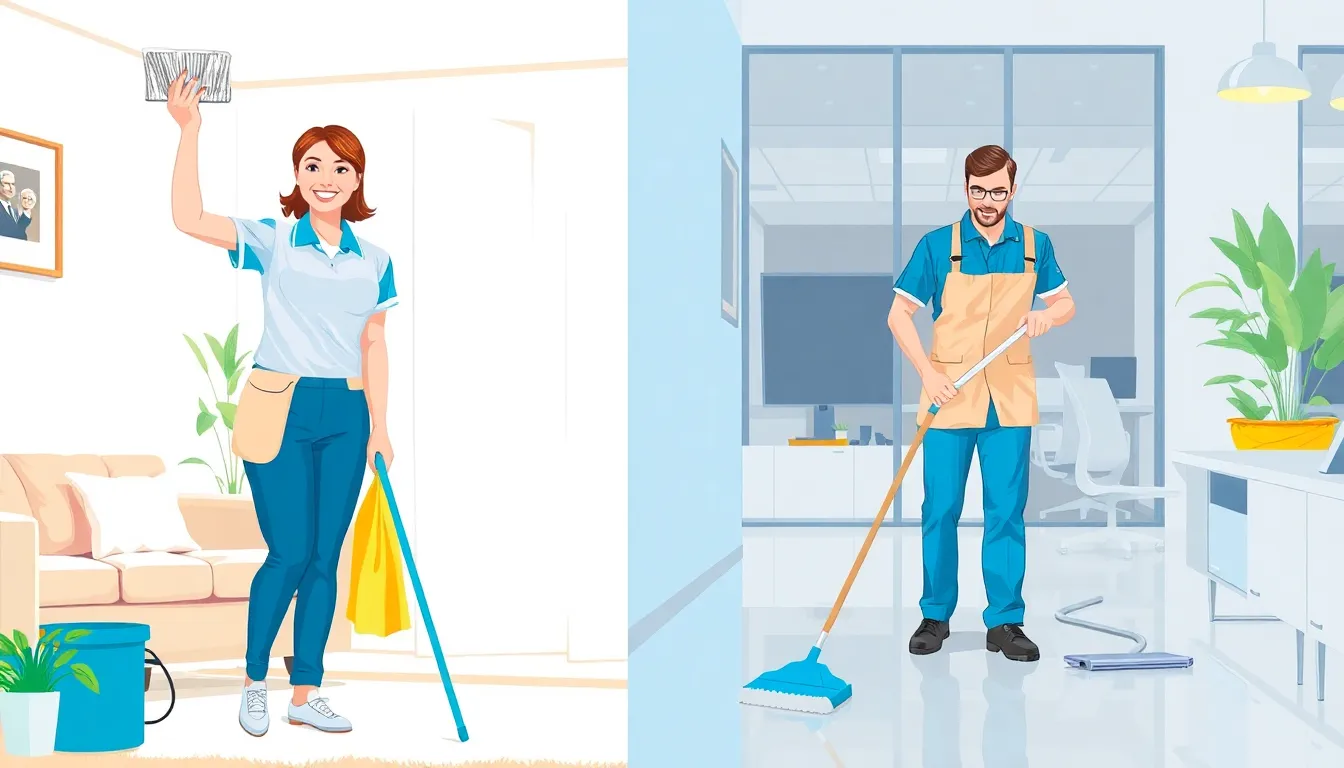
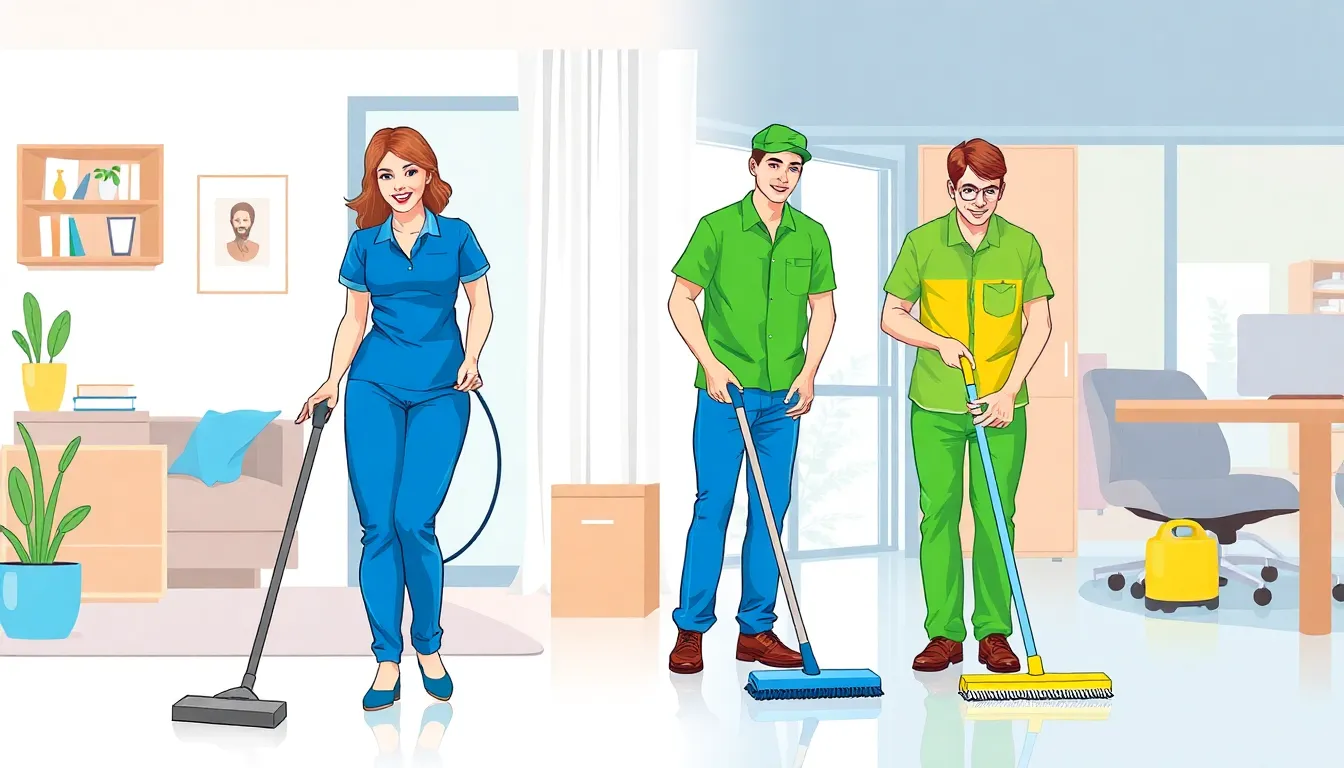
Cleaning staff come in various forms, each serving unique purposes across different environments. Understanding these types helps clarify their specific functions and contributions.
Residential Cleaning Staff
Residential cleaning staff focus on maintaining cleanliness in homes. This includes regular housekeeping duties like vacuuming, dusting, and mopping. Tasks often involve cleaning kitchens and bathrooms, ensuring sanitation in high-traffic areas. Professional cleaners may also offer specialized services such as deep cleaning or move-in/move-out cleaning. Many homeowners rely on these experts to simplify their lives and maintain a tidy living space.
Commercial Cleaning Staff
Commercial cleaning staff handle cleaning duties in workplaces such as offices, schools, and hospitals. These professionals ensure the sanitation of large areas that experience heavy foot traffic. Services provided typically include floor care, restroom sanitization, and window cleaning. Some commercial cleaners specialize in specific sectors, like medical facilities, where stringent sanitation standards must be met. Their work plays a vital role in promoting business hygiene and creating a productive work environment.
Hiring Cleaning Staff
Hiring cleaning staff requires careful consideration to ensure both cleanliness and professionalism in various environments. Identifying the right candidates sets the foundation for effective maintenance.
Key Qualifications To Look For
Experience plays a significant role in hiring cleaning staff. Seek candidates with a proven track record in residential or commercial settings. Reliability counts; candidates should demonstrate punctuality and consistency in their work habits. Attention to detail remains essential, ensuring that even the smallest areas receive thorough cleaning. Knowledge of cleaning techniques and products shows that the candidate understands the importance of appropriate practices. Trustworthiness matters; staff often work in private spaces, requiring integrity and discretion.
Interview Tips For Evaluating Candidates
Assessing candidates during interviews involves several strategic approaches. First, ask about previous cleaning experiences to gauge familiarity with various tasks. Pose situational questions to evaluate problem-solving skills, focusing on hypothetical scenarios they might face on the job. Observing body language provides insights into a candidate’s confidence and professionalism. Consider conducting a practical test to assess cleaning proficiency and efficiency in real-time. Finally, check references to confirm the candidate’s reliability and work ethic in past roles, helping ensure the best fit for your cleaning needs.
Training And Development
Training and development play a vital role in the effectiveness of cleaning staff. Well-designed programs enhance skills, increase job satisfaction, and improve overall performance.
Essential Training Programs
Cleaning staff should undergo essential training programs that cover various aspects of their roles. Safety protocols are fundamental, ensuring staff work in safe environments. Techniques for using cleaning equipment effectively must also be included. Additionally, proper handling of cleaning chemicals is crucial to avoid mishaps. Others might include education on time management and efficient cleaning methods. These programs help build a solid foundation, equipping staff with the necessary skills to perform their tasks effectively.
Ongoing Development Opportunities
Ongoing development opportunities are critical for keeping cleaning staff engaged and updated. Workshops on advanced cleaning technologies and products can enhance their expertise. Regular training sessions can also introduce new sanitation techniques. Encouraging certification programs provides staff with credentials that increase their marketability. Moreover, team-building activities foster collaboration and communication among staff members. These opportunities not only advance individual capabilities but also contribute to a more skilled and motivated workforce.

